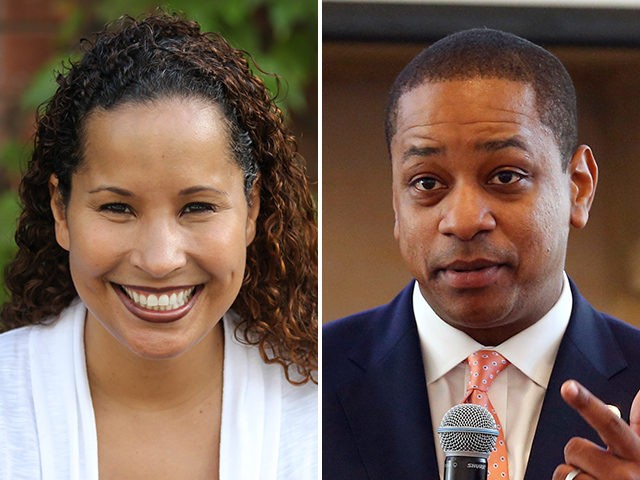Dr. Vanessa Tyson says that after the far-left Washington Post refused to publish her assault allegation again Lt. Gov. Justin Fairfax (D-VA), she “felt powerless, frustrated, and completely drained.”
Dr. Tyson is the California college professor alleging Fairfax forced her to perform oral sex on him in a hotel room at the 2004 Democrat National Convention in Boston.
Fairfax denies any wrongdoing and says the sexual encounter was consensual.
After Big League Politics, an alternative media site, broke the news of Tyson’s allegation over the weekend, the Post was forced to admit that it did indeed spike the story.
According to the Post, Tyson told her story in November of 2017, but the Post decided not to run it with this explanation:
The Post, in phone calls to people who knew Fairfax from college, law school and through political circles, found no similar complaints of sexual misconduct against him. Without that, or the ability to corroborate the woman’s account — in part because she had not told anyone what happened — The Post did not run a story.
The Post’s excuse for not running the story has been met with widespread skepticism, and for good reason. All of the standards used to justify spiking Dr. Tyson’s allegation against Fairfax were tossed out the window when the Post broke the news about a woman accusing Brett Kavanaugh, President Trump’s Supreme Court nominee, of similar misconduct.
In fact, when you compare the two allegations, although uncorroborated, Dr. Tyson’s is still much more credible than the one the Post published against Kavanaugh. You can read those facts here.
Now that Dr. Tyson’s allegation is getting some media attention, through her attorneys, she released a three page statement outlining the allegation and detailing her frustration at not being believed.
She says two things prompted her to tell her story after so many years: the rise of the #MeToo movement and Fairfax’s rise to power as Virginia’s freshly-elected lieutenant governor. It was only after he won that race in November of 2017 that she decided to take her story to the Post:
The passion and resolve of so many survivors, coupled with the job security tenure afforded me, gave me the strength I simply did not have in 2004. By December 2017, I not only told many friends that Mr. Fairfax has sexually assaulted me but I also reached out to a personal friend at The Washington Post and spoke to his colleague about the assault.
After The Washington Post decided in March 2018 not to run my story, I felt powerless, frustrated and completely drained. Again I tried to bury memories of this painful incident and focus my work on my students.
Then, as Democrat Virginia Governor Ralph Northam’s blackface scandal unfurled late last week and it looked as though his resignation would make Fairfax governor, Dr. Tyson says she was again motivated to tell her story. At first she did so cryptically on Facebook. In the Facebook post she did not name Fairfax, but the description of her alleged attacker left no doubt as to who she was referencing. It was this Facebook post that Big League Politics published (reportedly with her permission). From here the scandal blew wide open.
Dr. Tyson, however, did not choose to come forward until a few days later, only after Fairfax issued a statement that, in her words, “further escalating this matter by calling me a liar and falsely characterizing the reasons The Washington Post decided not to run a story about my allegations.”
She adds, “I have no political motive. I am a proud Democrat.”
“I very much wish to resume my life as an academic and professor,” she says in closing. “I do not want to get further embroiled in this highly charged political environment.”
Had the Washington Post simply offered Dr. Tyson the same respect and editorial standard it offered Kavanaugh’s far less credible accusers, this issue could have been resolved outside of this highly charged environment.
Follow John Nolte on Twitter @NolteNC. Follow his Facebook Page here.

COMMENTS
Please let us know if you're having issues with commenting.